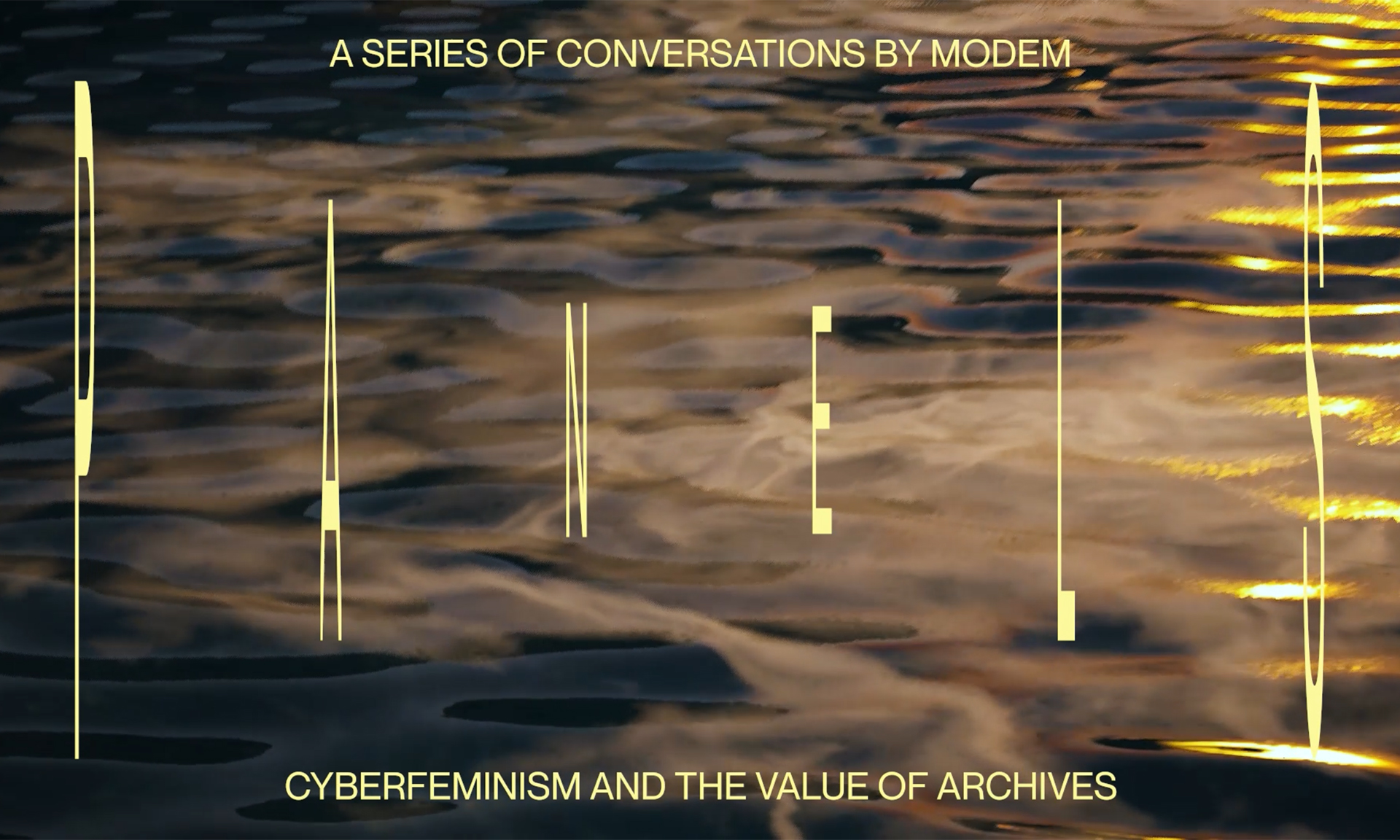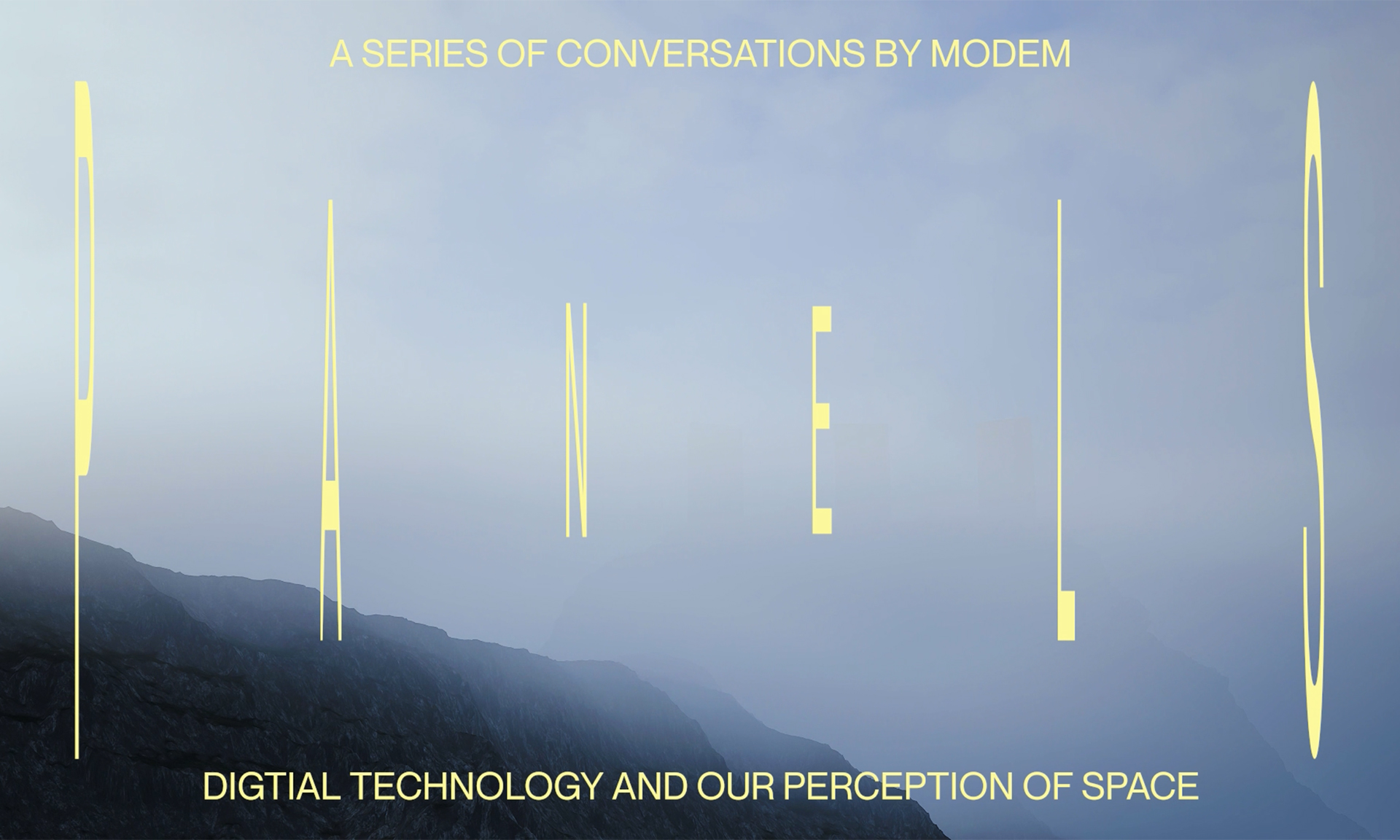MODEM PANELS
︎ watch panels season 01
Role: Curation & Assistance
Year: 2024
City: Amsterdam
Panels is a series of conversations hosted by Modem about our complex relationship with technology, moderated by Emily Segal. It’s a space for critical thinkers to envision how human minds and institutions can thrive amidst exponential change.

SEASON 01
The first season of Panels explores how technology is shaping broader cultural shifts. The conversations explore machine intelligence in creative processes, the changing role of digital archives, and how we perceive space in an increasingly hybrid world.
Set within a virtual environment built in Unreal Engine, Panels mirrors the seamless transition between digital and physical realms, creating a space that fosters critical dialogue on new and emerging possibilities.

Samir Bantal, Michael Rock and Emily Segal on Creative Practice in the Age of Machine Intelligence.
Discussion on: How is machine intelligence transforming design systems and creative practices, and what new forms of creativity might emerge as a result? By contrast, what are the pitfalls? Addressing the question from the branding angle – designers, systems, convention, collaboration, and business all coming together. How has the notion of finality, permanence or even “the deliverable” evolved from a static item into an evolving system?

Mindy Seu, Francesca Gavin and Emily Segal on Cyberfeminism and the Value of Archives.
Discussion on: In an age of anxiety that we may outlast our cloud providers, what is the value of a feminist index/archive? How have our concepts of archives evolved, and how will they continue to?What does it mean to examine feminism in dialogue with history, with the future’s past, and with the future itself?

Jack Self, Oana Stănescu and Emily Segal on Digital Technology and Our Perception of Space.
Discussion on: How has digital technology fundamentally changed the way we conceive of and interact with space?In what ways do digital spaces compete with or complement physical spaces in today’s architecture? How does the augmentation of the urban environment affect the distinction between public and private spaces?